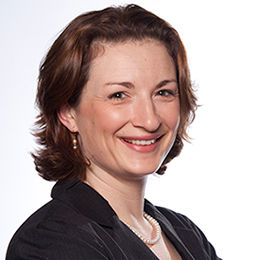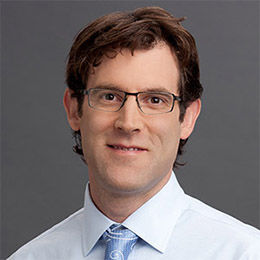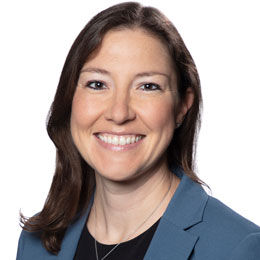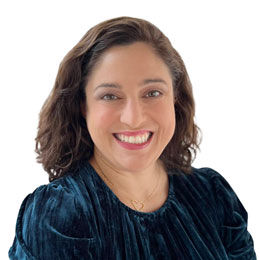Your child’s heart disease doesn’t just affect them, it affects the whole family. That’s why we offer emotional, social, and mental health support to our Betty Irene Moore Children’s Heart Center patients and families. When you are able to cope with your emotions, your child will be better able to thrive. We encourage you to ask us for mental health support at any stage during your child’s care journey.
Through Thrive and our partnerships with other teams at Stanford Children’s and in the community, we provide the following services:
Mental health screening
We start with a mental health screening from your Stanford Children’s social worker or doctor to help us learn what level of support you and your family need. We then have a consultation with you to develop an all-around social/emotional or mental health plan tailored to you and/or your child’s needs and interests.
Psychotherapy sessions
Our Thrive psychologists are experts in supporting children, teens, and parents with heart disease. They offer science-backed psychotherapy for medical trauma, helping you cope with treatments and manage overwhelming feelings. Sessions are tailored to your needs. For parents and caregivers, therapy is based on our team’s research on trauma-focused cognitive behavioral therapy, which has proven to significantly reduce symptoms of trauma, anxiety, and depression in parents.
Social work services
Thrive’s social workers provide personalized support and give you strategies to work through challenges that may occur during your child’s heart care journey. They also help with logistics, coordinate communication between you and your child’s medical team, and provide counseling.
Social work care: What to expect
- Every child and family in Betty Irene Moore Children’s Heart Center has access to a social worker who specializes in heart disease.
- We strive to have the same social worker follow you throughout your child’s hospital journey, including prenatally, and we work closely with our outpatient social work team to ensure continuity of care.
- If you are coming from out of state, your social worker can help with relocation and with the logistics of your stay once you arrive.
- Your social worker often initiates your mental health care. They begin with a mental health screening to help assess your needs and are available to provide supportive counseling. If you need a higher level of care, they help coordinate assessments and therapy with the appropriate mental health specialist.
- Your Stanford Children’s social worker helps to identify your family’s communication preferences and is available to help facilitate coordination of care with the multidisciplinary team.
- Your social worker can also connect you with resources for financial, transportation, and housing needs during hospital stays. They are a constant touchstone for questions and a guide for your hospital stay and beyond.
Parenting support
We provide our inpatient Heart Link Parent Support Group for parents/caregivers in our Cardiovascular Intensive Care Unit and our Acute Care Cardiology Unit. It is offered weekly in English and Spanish. If interested, ask your inpatient team or nurse for more information. We also connect parents with a parent mentor who has firsthand experience with having a child with complex congenital heart disease. Our parent mentor is available to share with you a parent’s perspective on struggles and triumphs and provide self-management suggestions for your child’s medical journey.
Neurodevelopmental care
Our care team collaborates with experts from our Cardiac Neurodevelopmental Program, one of a few programs like it on the West Coast, which empowers children with complex congenital heart disease to stay on track with their physical, cognitive, social, and emotional development. Our care includes partnering with your child’s school to carry out a care plan.
Psychiatry care
When your child could benefit from medication treatments for mental health challenges, we can refer to and partner with the Stanford Children’s Child and Adolescent Psychiatry team for their inpatient and outpatient visits.
Exercise program support
Exercise and an active lifestyle are closely tied to overall wellness. We partner with various Stanford Children’s exercise program teams to help children feel as good they possibly can. For example, we integrate our Thrive program support into cardiac rehabilitation, through the Cardiopulmonary Exercise Lab and the Young Hearts in Motion program. We partner with these teams to help children cope with the traumatic stress of having a congenital heart condition, face fears around exercising, and build self-esteem about their body and its abilities. Together, we empower them feel better and do better.
Palliative care
Our team’s palliative care clinician partners with patients and families who have serious, life-threatening heart conditions. In your meetings, you will receive support in making medical decisions and advance care planning. This care may be recommended for you if your child faces a complex heart surgery or heart transplant, or another critical (life-threatening) care procedure.
Ollie Hinkle Heart Foundation collaboration
To help extend mental health services to all of our Betty Irene Moore Children’s Heart Center patients and families, we have partnered with the Ollie Hinkle Heart Foundation to supplement our care.
Additionally, your child with heart disease can benefit from our hospital wraparound services:
Child Life and Creative Arts
Stanford Children’s has an award-winning Child Life and Creative Arts team, whose members help children and families cope with the stress of hospitalization and disease, including heart disease. Their services include healing arts, creative arts therapy (e.g., art and music therapy), recreation therapy, and helping ease preparation for procedures and surgeries.
Chaplain support
Our care team can refer you to health care chaplains who are available for spiritual and religion-specific faith-based counsel.
For more information, ask your child’s heart doctor at Stanford Children's about the Thrive Program.













Connect with us:
Download our App: